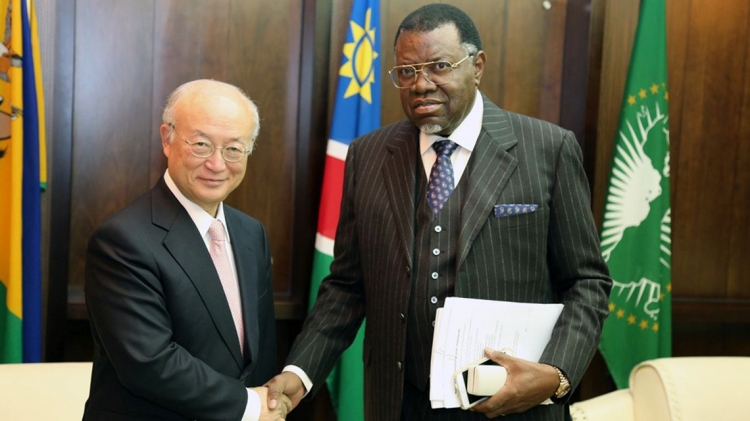IAEA Director General Yukiya Amano commended Lesotho on the country’s growing use of nuclear techniques in treating cancer, breeding livestock and producing a variety of crops.
“Nuclear science and technology are making a significant contribution to sustainable development across Africa,” Mr Amano told Prime Minister Pakalitha Mosisili in Maseru, Lesotho's capital on 12 May. “The IAEA welcomes Lesotho’s increased interest in the peaceful use of nuclear technology in health, agriculture and other areas.”
Mr Amano visited the site in Maseru, where Lesotho's first radiotherapy facility will be built in the next few years, with assistance from the IAEA.
The IAEA has supported the planning and design of the facility through a series of expert missions. Lesotho has also received IAEA assistance in establishing a national regulatory infrastructure for radiation safety, a critical step in ensuring the safety of patients and staff of the new cancer centre and a prerequisite for the use of radiation technologies.
The IAEA Director General visited laboratories of the Department of Agricultural Research and the Department of Livestock.
The Agency has supported Lesotho in strengthening the country’s livestock industry and protecting animals from diseases, using nuclear and nuclear-related techniques. This has led to an increase in agricultural exports. An IAEA technical cooperation project is focusing on improving the yield of potato and bean crops by using nuclear techniques to develop new varieties of plants that are more resistant to drought and diseases.
In Maseru, Mr Amano had an audience with King Letsie III and met a number of government ministers.
Lesotho was the second stop in Mr Amano’s visit to southern Africa after South Africa, where he addressed the International Congress of the International Radiation Protection Association in Cape Town and met senior government ministers in Pretoria.
Namibia: cancer care and benefits on nuclear technology
From Lesotho, Mr Amano travelled to Windhoek, Namibia, where he had talks with President Hage Geingob, First Lady Monica Geingos and senior government ministers. He visited Namibia’s Veterinary Laboratory and the Dr A. Bernard May Cancer Care Centre.







